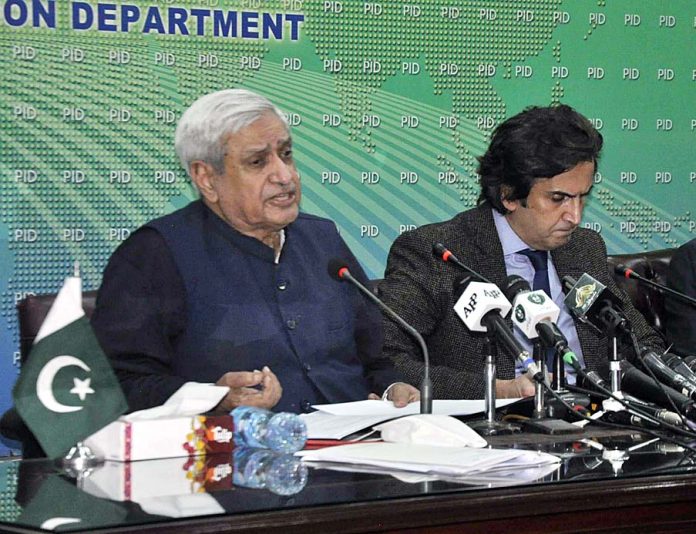hISLAMABAD: Terming the Sindh government’s announcement of higher wheat support price against the price set by the federal government a “non-serious and anti-people action”, Minister for National Food Security and Research Syed Fakhar Imam on Thursday said the government was mulling over finding a constitutional way to set a uniform support price of the commodity to stop provinces from fixing varying minimum prices.
“Before announcing the minimum support price of wheat at Rs1,950 per 40 kg, the federal government had asked the Sindh government to submit its proposal but it failed to do so and instead announced a much higher support price at Rs2,200 per 40 kg,” he said while addressing a press conference here along with Minister for Industries Khusro Bakhtyar.
Fakhar Imam said that the difference in support price created distortion and encouraged hoarding and profiteering.
He said the federal government had set the wheat support price at the rate
of Rs1,950 to maintain a balance between purchasing power of the consumer and input cost of the farmers.
The minister added that due to higher support price announced by the Sindh government last year, the price of wheat in the province was much higher than in Punjab.
With respect to the wheat stock in the country, he said there was no shortage of the commodity as the government had enough stocks to last till the first week of June 2022.
Till date, he said, the government had 5.3 million tonnes (MT) of wheat whereas after the arrival of 1.3 million tonnes of imported wheat, stocks would reached to over 6.6 MT. “We are releasing 40,000 tonnes of the commodity on daily basis and if this continues, the stock would be available till the first week of June next year,” he added.
He said the people of the province were suffering and bound to purchase unjustified costly wheat flour due to wrong policies of the Sindh government.
He said this year, the government imported much less wheat compared to the set target which helped save precious foreign exchange of over $800 million.
Speaking on the occasion, Bakhtyar said that Sindh had become a safe haven for hoarders and profiteers.
He said a huge amount of urea fertilizer which was basic input for most of the major crops was transported from rest of the country to Sindh for hoarding.
He said that in Punjab, the government was conducting crackdowns against dealers involved in hoarding while the Sindh government was doing nothing against them; therefore, they were shifting it to Sindh.
He said the people must ask the Pakistan People’s Party (PPP) government to identify any step it had taken for the welfare of public.
“There are many other ways of doing politics. The Sindh government should not do politics on poor consumers’ price,” he added.




